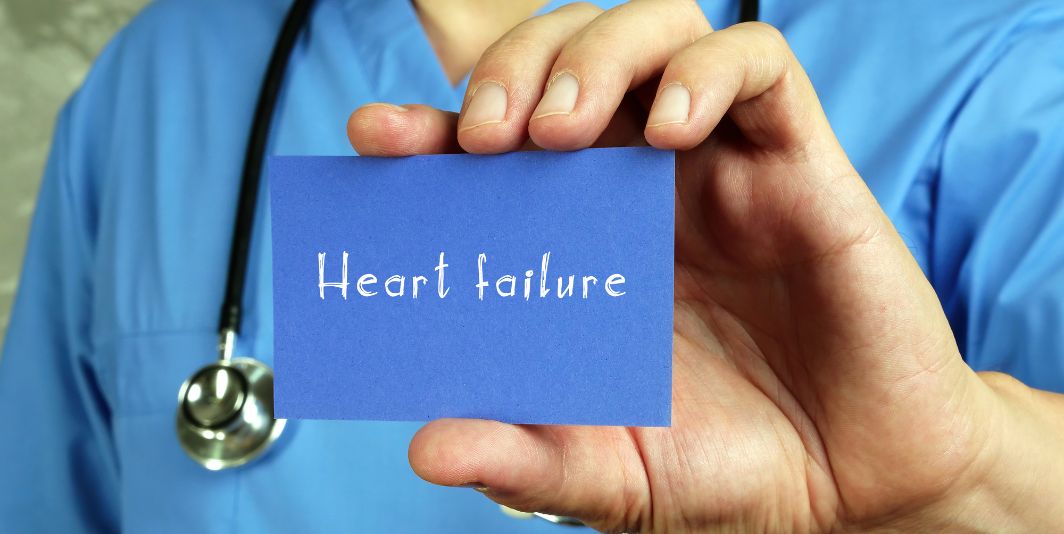How to Live with Heart Failure
- Category: LiveSmart
- Posted On:
- Written By: Baldwin
Here are answers to common questions about living with this chronic condition.
Heart failure is a condition that occurs when your heart isn't working as well as it should. This causes your heart to not be able to pump enough blood to meet your body's needs, which may cause fatigue, shortness of breath and other symptoms. There is no cure for heart failure, but the condition can be managed and many people live full lives with the disease.
Not sure what to expect if you have been diagnosed with heart failure? Here are answers to some common questions about living with the condition.
What should I watch out for if I have heart failure?
If you have been diagnosed with heart failure, medication and lifestyle changes can help you manage symptoms and keep your condition from worsening. But it's important to be aware of new or worsening symptoms, which may indicate that your condition is progressing. Symptoms to look out for include shortness of breath with activity or when lying down, fatigue, weakness, reduced ability to exercise, rapid or irregular heartbeat, wheezing, coughing and swelling in the legs, ankles or feet. If you notice these symptoms, contact your doctor.
What can I do to improve my heart?
In addition to taking any medication prescribed by your doctor, several healthy lifestyle habits can help you manage heart failure better. These include losing weight if you are overweight, following a heart-healthy diet, lowering your salt intake, exercising regularly, limiting or avoiding alcohol, not smoking, getting enough sleep and managing stress.
Can I still do my normal activities if I have heart failure?
If you have recently been diagnosed with heart failure, it's best to increase the amount of activity you do slowly. Listen to your body so you know if you're doing too much too soon. As long as you feel up to it, most people can still do any activities they did before, but it's best to check with your doctor and follow any advice he or she may offer.
Can I still work if I have heart failure?
Many people who have heart failure are still able to work. If your job is strenuous, you may need to modify what you do or stop working, but more sedentary jobs can usually be continued. If you have been in the hospital for heart failure, your return to work will be based on your recovery and your doctor's recommendations.
Can I travel if I have heart failure?
Most people with heart failure can lead full and fulfilling lives, and as long as your condition is under control, you should be able to travel. Just make sure you take your medications with you, as well as your doctor's contact info in case you need it. Follow precautions to stay healthy and don't overdo things just because you're away from home – let your body be your guide for how much you can do.
Will cardiac rehabilitation make me feel better?
Cardiac rehabilitation is a supervised program that helps people with heart failure and those recovering from a heart attack or other heart-related issues get stronger, build healthier habits and get back to doing their normal activities. If you have been diagnosed with heart failure, talk to your doctor about whether this type of program is right for you.
For more LiveSmart articles, visit www.McKenzieHealth.org/LiveSmart.
Copyright 2024 © Baldwin Publishing, Inc. Health eCooks® is a registered trademark of Baldwin Publishing, Inc. Cook eKitchen™ is a designated trademark of Baldwin Publishing, Inc. Any duplication or distribution of the information contained herein without the express approval of Baldwin Publishing, Inc. is strictly prohibited.
Date Last Reviewed: April 18, 2024
Editorial Review: Andrea Cohen, Editorial Director, Baldwin Publishing, Inc. Contact Editor
Medical Review: Perry Pitkow, MD
Learn more about Baldwin Publishing Inc. editorial policy, privacy policy, ADA compliance and sponsorship policy.
No information provided by Baldwin Publishing, Inc. in any article is a substitute for medical advice or treatment for any medical condition. Baldwin Publishing, Inc. strongly suggests that you use this information in consultation with your doctor or other health professional. Use or viewing of any Baldwin Publishing, Inc. article signifies your understanding and agreement to the disclaimer and acceptance of these terms of use.
